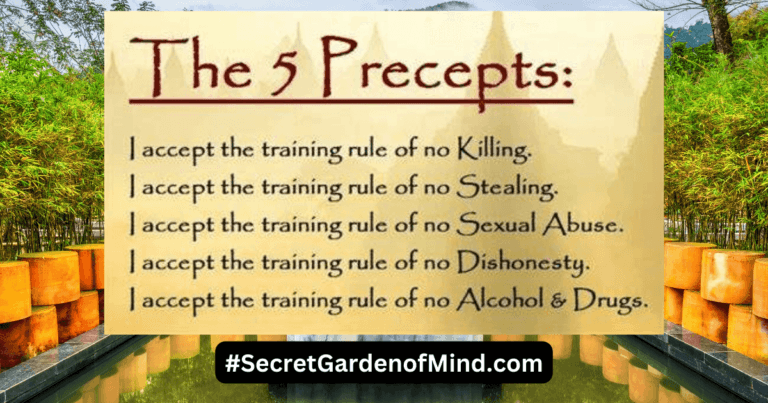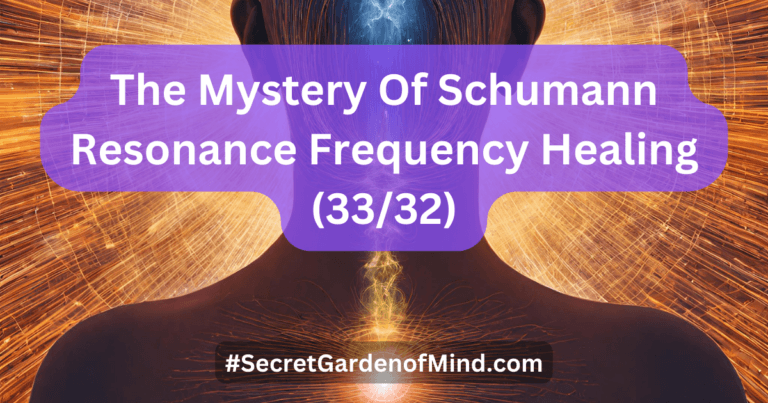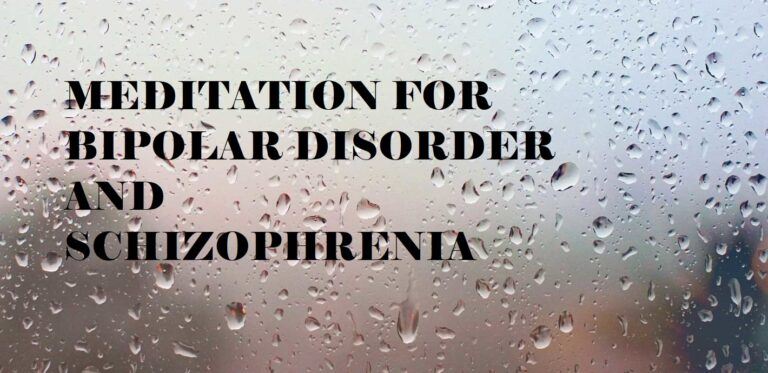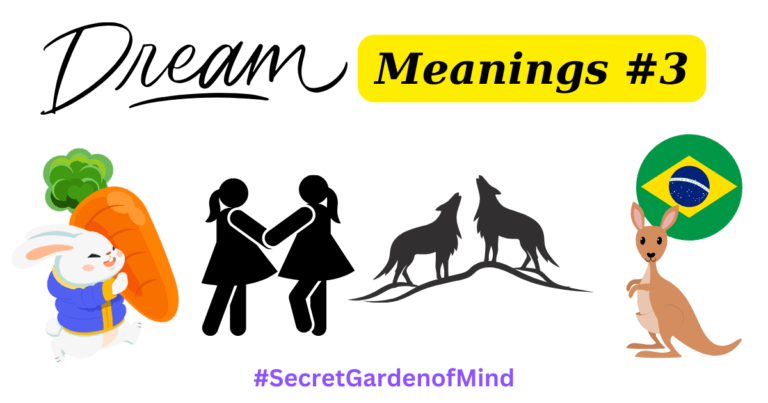What Happens During REM Sleep? and How This Affects Dreaming?
Are You Wondering About What Happens During REM Sleep? and How This Affects Dreaming? I have covered this topic in a few articles now but I thought that actually, it would be good to write a whole post about this and what really happens during REM sleep. Especially, in relation to our dreams and how this affects us on a metaphysical level.
So, REM (rapid eye movement) sleep is a stage of our sleep cycles characterized by rapid eye movements, vivid dreams, and muscular atonia (muscle paralysis). During REM sleep, the brain is very active, almost as active as when we are awake.
Some Indicators of this include;
- Increased Brain Activity: The brain is very active during REM sleep, with neurons firing rapidly. This is the stage of sleep where most dreaming occurs including Nightmares and Lucid Dreams.
- Rapid Eye Movements: This kind of goes without saying during this time our eyes move rapidly back and forth. Of course, this is where the name “rapid eye movement” comes from.
- Muscle Paralysis: During REM sleep, the body’s muscles are essentially paralyzed, which is thought to prevent us from acting out our dreams. It is kind of a natural safety measure to protect us and others around us.
- Increased Heart Rate and Breathing: The heart rate and breathing rate increase during REM sleep, similar to when we are awake. Incredibly this is unlike any other stage of sleep.
- Memory Consolidation: REM sleep is thought to play an important role in consolidating memories and processing emotional experiences. This is thought to be one of REM sleeps main purposes.
- Restoration: REM sleep is also thought to be a time that is beneficial for restoring the brain and body. This is kind of debatable because some people do not have REM sleep but still, this does appear to be true.
And besides this, not really much else is known although there is plenty that is believed to happen. REM sleep like dreaming itself is a phenomenon that still leaves room for much to be understood.
I shall try to discuss this more in later sections of this post. I hope this is something you will enjoy reading and of course, any questions I will be happy to try and answer in the comments. Now…
What Happens During REM Sleep? and How This Affects Dreaming? and Other Questions
So what happens during REM Sleep? Our breathing becomes faster and more irregular. Our heart rate and blood pressure increase to near-waking levels. Then most of our dreaming occurs. Our arm and leg muscles become temporarily paralyzed, which prevents us from acting out our dreams, and our eyes start flickering as if we are seeing everything in our dreams like we do whilst we are awake.

REM Sleep is really a very strange experience. Even though it is part of everyday life it still remains to be quite mysterious in nature. We know that deep sleep which occurs before REM sleep is where we regulate hormones and repair nerve cells but REM sleep and its purpose leave’s us with a lot of questions.
I by no means have all the answers here but I’m sure for many reading this is still quite an intriguing topic.
I’ve written a few posts now about sleep and dreaming but this is actually right at the center of it. As most dreaming occurs during REM sleep. You can dream in other stages of sleep but this is where 90% of dreams occur.
Why is REM Sleep so Important?
Why do we need REM Sleep? Plenty of people may not give this much thought at all other than that if they don’t sleep well the night before then the next day they will feel like total rubbish. I’m sure many people reading this will know exactly what I mean but actually, REM sleep is integral to getting a good night’s sleep.
Basically, we can sleep for 8-9 hours without REM sleep and still feel like rubbish. It is maybe the most important stage of sleep after deep sleep for making us feel properly rested
However, still this is an odd question because although REM sleep is associated with learning and memory individuals that suffer from non-REM sleep disorders can learn and remember things just as well as others. In fact, other than not feeling great the next day this main question is one really without a conclusive answer.
All we can say is sleep deprivation in general can have many negative effects on our health and well-being.
We will come back to this soon but just quickly…
How About REM Sleep and Dreaming
During REM sleep, the brain is highly active and neurons fire rapidly. This increased activity is thought to be responsible for the vivid and often bizarre nature of our dreams during this stage of sleep. The rapid eye movements that occur during REM sleep are also associated with dreaming, as research has shown that people who have been woken up during REM sleep are more likely to report having vivid, story-like dreams.
Lucid dreaming also mostly happens during REM sleep and this process seems to be a key part of this happening.
Also, REM sleep is important for emotional regulation during dreams. Studies have shown that during REM sleep, the brain’s emotional centers are highly active, while the prefrontal cortex, which is responsible for rational thought and decision-making, is less active. This may explain why dreams often have a strong emotional component and why we sometimes act irrationally or impulsively in our dreams.
Brain Activity During REM Sleep
Whilst REM sleep occurs, the brain exhibits a unique pattern of activity that is distinct from other stages of sleep. The brain waves during REM sleep are similar to those observed during wakefulness, with high-frequency, low-amplitude waves. These brain waves are called beta and gamma waves and are associated with high levels of neural activity.
One part of the brain that is particularly active during REM sleep is the amygdala. We have one Amygdala on each hemisphere of the brain and this almond-shaped tissue is responsible for regulating emotions. This may be why dreams during REM sleep are often emotional and vivid.
However, In addition to the amygdala, other brain regions such as the hippocampus and prefrontal cortex are also active during REM sleep. In fact, the high levels of neural activity during REM sleep are thought to be crucial for dreaming. So much so that the brain is able to create complex and vivid dreams that are often based on real-life experiences.
The activation of the amygdala and other brain regions may also play a role in the creation of dreams, as emotions and memories are processed during this stage of sleep.
When Does REM Sleep Occur?
REM sleep is a unique stage of sleep that is characterized by a combination of physical and mental changes. During REM sleep, the eyes move rapidly back and forth, which is why it is often called “rapid eye movement” sleep. The body’s muscles are essentially paralyzed, with the exception of a few small muscle groups involved in breathing and eye movements. The brain is highly active during this stage of sleep, with neurons firing rapidly, and most dreaming occurs during this stage.
The amygdala, a part of the brain involved in emotional processing, is particularly active during REM sleep, which may explain why dreams during this stage of sleep are often emotional and vivid. REM sleep is also thought to play an important role in consolidating memories and processing emotional experiences.
Studies have shown that REM sleep helps to consolidate newly acquired memories and to integrate them into existing knowledge structures. Additionally, REM sleep is believed to be important for restoring the brain and body, as the body repairs and regenerates tissues, and the brain replenishes neurotransmitters and other chemicals necessary for proper functioning.
Overall, REM sleep is a fascinating stage of sleep that plays crucial roles in various physical and mental processes.
How Much REM Sleep Do We Actually Need?
While it is still unclear exactly how much REM sleep we need, studies suggest that it is an important stage of sleep for overall health and well-being. In general, adults spend about 20-25% of their total sleep time in REM sleep, with each REM cycle lasting anywhere from 5 to 45 minutes.
However, the amount of REM sleep we need can vary based on a variety of factors, including age, sex, and overall health. Infants, for example, spend much more time in REM sleep than adults, with up to 50% of their total sleep time spent in this stage. As we age, the amount of time spent in REM sleep decreases, with older adults spending less than 20% of their total sleep time in REM.
Certain medications and medical conditions can also affect REM sleep. For example, antidepressant medications are known to suppress REM sleep, while conditions such as sleep apnea can disrupt REM sleep and overall sleep quality.
However, despite the variation in the amount of REM sleep we need, it is clear that this stage of sleep is important for overall health and well-being. REM sleep plays a critical role in memory consolidation, emotional processing, and restoration of the brain and body. As such, ensuring that we are getting enough quality sleep, including sufficient time in REM sleep, is crucial for maintaining good health and cognitive function.
What Happens if We Don’t Get Enough REM Sleep?
This has not been proven to be true exactly but not getting enough REM sleep can have negative effects on cognitive function, mood, and overall health. It can lead to difficulties with memory consolidation and emotional regulation, as well as an increased risk of depression and anxiety.
Additionally, a lack of REM sleep can impair the body’s ability to repair and regenerate tissues, leading to physical health problems over time.
Sleep Disorders Associated With REM Sleep
There are several sleep disorders that are specifically associated with REM sleep, including:
- REM Sleep Behavior Disorder (RBD): RBD is a sleep disorder in which the body’s muscles are not fully paralyzed during REM sleep, leading to physical movements and sometimes violent behaviors during dreams.
- Nightmares: While not a disorder in and of themselves, frequent and distressing nightmares can be a sign of underlying sleep disorders, including those that affect REM sleep.
- Narcolepsy: Narcolepsy is a neurological disorder that affects the brain’s ability to regulate sleep-wake cycles. One of the hallmark symptoms of narcolepsy is excessive daytime sleepiness, but individuals with narcolepsy may also experience REM sleep abnormalities, including sudden onset of REM sleep during the day or during non-REM sleep.
- Sleep Apnea: This is a sleep disorder in which breathing is interrupted, leading to fragmented sleep and disruptions to REM sleep. As a safety measure, the brain will not cycle into a deep sleep which needs to happen before REM sleep.
- Insomnia: While not specifically associated with REM sleep, insomnia can disrupt the overall sleep cycle and lead to difficulties with achieving and maintaining REM sleep.
Treatment for these sleep disorders varies depending on the specific condition and underlying causes. In some cases, medications or behavioral therapies may be recommended to improve sleep quality and manage symptoms.
How to Improve REM Sleep
There are several strategies that can help improve REM sleep and overall sleep quality, including:
- Maintaining a Regular Sleep Schedule: Going to bed and waking up at the same time every day can help regulate the body’s internal clock and promote more consistent REM sleep.
- Creating a Sleep-Conducive Environment: Keeping the bedroom cool, dark, and quiet can help promote restful sleep, including more time in REM sleep.
- Limiting Caffeine and Alcohol Intake: Consuming caffeine or alcohol too close to bedtime can interfere with sleep quality, including reducing the amount of time spent in REM sleep.
- Exercising Regularly: Regular exercise can help promote better sleep quality, including more time spent in REM sleep. However, it is important to avoid intense exercise too close to bedtime, as this can interfere with sleep.
- Managing Stress: Stress and anxiety can interfere with sleep quality, including the amount of time spent in REM sleep. Strategies such as mindfulness meditation or relaxation techniques can help promote better sleep quality.
- Treating Underlying Sleep Disorders: If experiencing symptoms of a sleep disorder, such as sleep apnea or narcolepsy, it is important to seek proper diagnosis and treatment from a healthcare provider. Treating underlying sleep disorders can help improve overall sleep quality and promote more restful REM sleep.
Overall, prioritizing good sleep hygiene and practicing healthy habits can help improve REM sleep and overall sleep quality.
REM Sleep, The Pineal Gland, and The Third Eye
In regards to REM Sleep and dreaming, the pineal gland is a small endocrine gland located in the brain that is responsible for producing and secreting the hormone melatonin, which helps regulate the sleep-wake cycle.
Some spiritual and metaphysical beliefs suggest that the pineal gland is also connected to the concept of the “third eye,” which is said to be a source of intuition, higher consciousness, and spiritual awareness.
While there is no scientific evidence to support the idea that the pineal gland is directly connected to the third eye, there is some research to suggests that it may play a role in regulating REM sleep. Specifically, studies have shown that the pineal gland is involved in the regulation of the circadian rhythm, which is the internal clock that helps regulate sleep-wake cycles. Melatonin is also secreted by the pineal gland and is known to play a critical role in regulating the duration of REM sleep.
Furthermore, studies have also suggested that the pineal gland may be involved in regulating the timing and content of dreams. For example, research has shown that the pineal gland may play a role in the modulation of visual imagery during REM sleep, which is a key component of dream content.
The Metaphysical Link
I think this is the fascinating part. The third eye may not be provable by science but there are numerous cases of dreams where future events have been predicted. This is called precognition and famous cases include the Titanic sinking, Abraham Lincoln foreseeing his own death, the Aberfan landslide, and Robert Kennedy’s assassination.
<iframe width=”560″ height=”315″ src=”https://www.youtube.com/embed/oBoesFvNEJY” title=”YouTube video player” frameborder=”0″ allow=”accelerometer; autoplay; clipboard-write; encrypted-media; gyroscope; picture-in-picture; web-share” allowfullscreen></iframe>
Also, many number 1 songs have come to the artists during their dreams. Including REM’s – End of The World!
I think maybe the songs could be a coincidence but perhaps there is a divine aspect.
Many things in dreams we forget. Even if we can remember our dreams when we wake up throughout the day we will no longer remember them. Also, many dreams we will not fully understand, and this could be where what happens during REM sleep and dreaming can guide us to making better choices in our waking life.
For this to be better understood there is no better way than keeping a dream diary and looking over this information to try and decipher its meaning. How many dreams are trying to tell us something that we don’t pay attention to?
I will leave the rest up to you but just to bring this article to a close.
In Conclusion;
REM sleep is a critical stage of the sleep cycle that plays a vital role in numerous functions, including memory consolidation, emotional regulation, and dreaming. While the exact mechanisms behind REM sleep are not yet fully understood, research has provided significant insight into the brain activity and physiological changes that occur during this stage.
But what really does happen? Do we dream to ease our way back into waking reality or do dreams serve us as a metaphysical guidance system to help us find out where we need to get to on our life journey? Perhaps dreams are only to keep us occupied whilst the brain and body run their maintenance protocols or maybe it is all these things.
I will let you have a think about this all and if you would like to share your thoughts in the comments section I would love to hear from you about what your dreams mean to you and what the true purpose of REM sleep really is.
Many thanks for reading. Your time is much appreciated.
Best regards;
Alex C
Contact us at XanderChakra@gmail.com
FAQs
What is REM Sleep?
REM (Rapid Eye Movement) sleep is a stage of the sleep cycle characterized by rapid eye movements, muscle atonia, and heightened brain activity. It is also known as “paradoxical sleep” because the brain is active, while the body is mostly immobilized.
During REM sleep, the brain consolidates memories, processes emotions, and this is also the stage where vivid dreams occur.
What Is The Difference Between REM Sleep and NREM Sleep
NREM (Non-Rapid Eye Movement) sleep is a stage of the sleep cycle that occurs before REM sleep. NREM sleep can be further divided into three stages, with each stage characterized by a different pattern of brain activity and physiological changes. Unlike REM sleep, NREM sleep is characterized by minimal brain activity, and the body is not immobilized.
Is REM or Deep Sleep Better?
Both REM and Deep Sleep are important stages of the sleep cycle, and both play different but vital roles in maintaining physical and mental health. REM sleep is essential for cognitive processes such as memory consolidation and emotional regulation, while deep sleep is critical for physical restoration, hormone regulation, and growth.
What Happens If You Wake Up During REM?
If you wake up during REM sleep, you may experience vivid dreams and feel disoriented or groggy. However, waking up during REM sleep is a natural part of the sleep cycle, and most people will wake up at least a few times during the night.
Can You Have REM Sleep Without Dreams
Dreams are a common feature of REM sleep, and most people experience dreams during this stage. However, it is possible to experience REM sleep without dreaming, and some individuals may not recall their dreams upon waking up.
Can You Get Too Much REM Sleep
While REM sleep is essential for maintaining physical and mental health, getting too much REM sleep can be a sign of an underlying sleep disorder or other health condition. However, it is not common to get too much REM sleep, as the amount and distribution of REM sleep are tightly regulated by the body’s internal clock.
Are 3 Hours of REM Sleep Too Much?
3 hours of REM sleep is not necessarily “too much,” but getting only three hours of REM sleep per night is likely not enough for optimal health and well-being. The average person needs about 90 minutes of REM sleep per night, with the duration and distribution of REM sleep varying throughout the night.
Does Dreaming Mean Good Sleep?
Dreaming is a natural part of the sleep cycle, and most people experience dreams during REM sleep. However, good quality of sleep is determined by several factors, including sleep duration, sleep efficiency, and the amount of time spent in different stages of the sleep cycle, not just the occurrence of dreams.
Can Dreams Predict the Future?
There is no scientific evidence to support the idea that dreams can predict the future. While dreams may be influenced by our experiences, emotions, and thoughts, it is generally believed by skeptics that they are not prophetic or able to predict future events. However, many fascinating cases of precognition have surfaced over the years and well actually maybe they can.
References
- National Sleep Foundation. (n.d.). What is REM Sleep? Retrieved from https://www.sleepfoundation.org/articles/rem-sleep
- National Sleep Foundation. (n.d.). What is NREM Sleep? Retrieved from https://www.sleepfoundation.org/articles/nrem-sleep
- Sleep Foundation. (2021, June 25). The Different Stages of Sleep. Retrieved from https://www.sleepfoundation.org/how-sleep-works/stages-of-sleep
- National Sleep Foundation. (n.d.). REM Sleep: What is it and Why is it Important? Retrieved from https://www.sleepfoundation.org/articles/rem-sleep
- American Academy of Sleep Medicine. (n.d.). Sleep Deprivation. Retrieved from https://aasm.org/sleep-deprivation/
- American Sleep Association. (n.d.). Rapid Eye Movement (REM) Sleep. Retrieved from https://www.sleepassociation.org/sleep-stages/rem-sleep/
- National Institute of Neurological Disorders and Stroke. (2019, December 9). Brain Basics: Understanding Sleep. Retrieved from https://www.ninds.nih.gov/Disorders/Patient-Caregiver-Education/understanding-Sleep
- American Sleep Association. (n.d.). Dreams and Sleep. Retrieved from https://www.sleepassociation.org/about-sleep/dreams-and-sleep/
- National Sleep Foundation. (n.d.). How Much Sleep Do We Really Need? Retrieved from https://www.sleepfoundation.org/how-sleep-works/how-much-sleep-do-we-really-need
- The Sleep Doctor. (2017, August 29). Too Much REM Sleep? What It Means and What to Do About It. Retrieved from https://thesleepdoctor.com/2017/08/29/too-much-rem-sleep-what-it-means-and-what-to-do-about-it/
- National Sleep Foundation. (n.d.). Why Do We Dream? Retrieved from https://www.sleepfoundation.org/articles/why-do-we-dream
- Psychology Today. (2021, January 6). Can Dreams Predict the Future? Retrieved from https://www.psychologytoday.com/us/blog/dream-catcher/202101/can-dreams-predict-the-future
alzheimer disease therapy amazon bean products bean products bean bags bean products bed pillows bean products bolster bean products chicago bean products coupon code bean products decorative accent pillows bean products shredded foam bean products usa bean products yoga Dream Diaries energy healing guided meditation for cancer guided meditation for cancer healing guided meditation for cancer patients how to lucid dream Law of Attraction Light and Sound Machine lucid dream herbs Manifestation Marcus Aurelius Marcus Aurelius Meditations Marcus Aurelius Most Famous Quotes meditation meditation alzheimer meditation alzheimer prevention meditation alzheimers meditation dementia meditation for cancer healing meditation for memory loss meditation memory meditation memory loss mr bean new products pre dementia reiki alzheimer reiki dementia reiki distance healing remote viewing exercises free remote viewing future remote viewing future predictions remote viewing gambling The Source third eye meditation transcendental meditation for cancer






